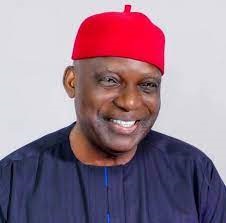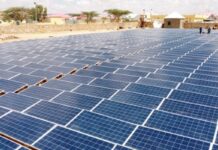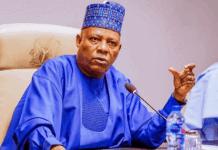* Calls for 100,000 MW power generation and adaption of super grid transmission infrastructure
CHIGOZIE AMADI
Chairman and Chief Executive Officer of Geometric Power Group, Professor Bart Nnaji, has warned that current promotion of the use electric and gas powered vehicles in Nigeria would be thwarted by insufficient supply of gas and electricity as well as non-availability of required infrastructure to recharge electric vehicles.
Nnaji spoke yesterday in Lagos, when he delivered the keynote address on “Powering Up Nigeria: Embracing Clean Technologies for Sustainable Growth,” at the American Business Council (ABC) Economic Update, held at Pier Harbour, Victoria Island.
Nnaji, a former Minister of Power, urged the federal government never to yield to the pressure to classify natural gas as a regular fossil fuel to be extinguished in the name of transition to cleaner energy.
He also asked the government to be wary of dabbling into the development of nuclear energy without giving adequate consideration to the management of its wastewater.
The former minister tasked the government to increase power generation to 100,000 MW and upgrade the country’s power transmission infrastructure to the super grid in order to acquire capacity to efficiently transmit electricity to all part of the country.
Chief Executive Officer (CEO)/Executive Secretary of ABC, Ms. Margaret Olele, said, “The economic update is something that we have been doing over the years since 2020 to look at critical issues around business and investments that impact on the economy and see how to move forward.
“The theme of the ABC’s Economic Update was ‘Energising Nigeria: Navigating Challenges, Harnessing Opportunities.’”
Nnaji stated, “In terms of vehicular transportation, Nigeria seems to be embracing CNG vehicles and electric vehicles. But there are challenges to these two solutions. On the CNG solution, the gas must be available to be compressed into CNG.
“Unfortunately, the non-availability of adequate gas for power and industrial processes will also afflict the CNG initiative.”
He said while the authorities must be commended for exploring overseas markets for Nigeria’s natural gas for the country’s benefit, “they need to bear in mind that charity starts at home.
“It is not just local power producers that are currently bleeding owing to insufficient gas; there is not sufficient liquefied petroleum gas (LPG) for our kitchens.”
He said, “A well-articulated and sustainable programme needs to be put in place to incentivise investors to aggressively increase natural gas production in Nigeria. It is for this reason that I have called for emergency treatment of the gas sector in Nigeria.”
Nnaji added, “For Nigeria to benefit from the EV rush, the recharging infrastructure must be built. More importantly, the electric power needs to be available at the recharging stations.
“Without including this potentially new demand sector for power, my estimate is that Nigeria needs more than 100,000 MW to meet its energy needs.
“Unfortunately, we currently have just 13,000MW of installed capacity from which we are only able to put less than 5,000 MW on grid due to reasons primarily of gas and transmission constraints.”
Nnaji acknowledged the reality of climate change, but insisted that in considering the achievement of climate change objectives, Nigeria should first focus on energy security for its population.
He said, “We should recognise that natural gas is transition energy. We will not be cowed to classify it as a regular fossil fuel to be extinguished. This fuel is our energy ticket to sustainable economic development.”
Advising the government to be wary of dabbling into nuclear energy, Nnaji observed that there were three main issues with nuclear energy, which its promoters hardly highlighted.
He said, “The first is that the main raw material for its production, uranium, is a mineral that is mined. The environment is affected adversely in the process of its production.
“The second issue is the management of its wastewater. Japan is still grappling with how to dispose of its nuclear wastewater following the 2011 tsunami, which destroyed its nuclear plant in Fukushima.
“If Japan, a wealthy nation and a technological superpower, could find it difficult to sort out the Fukushima Daiichi nuclear waste water, with over 62 types of radioactive materials, how about a typical developing country?
“The third issue is that it is easy to weaponise a nuclear plant. A nuclear weapon in the hands of some countries can be extremely dangerous.”

























